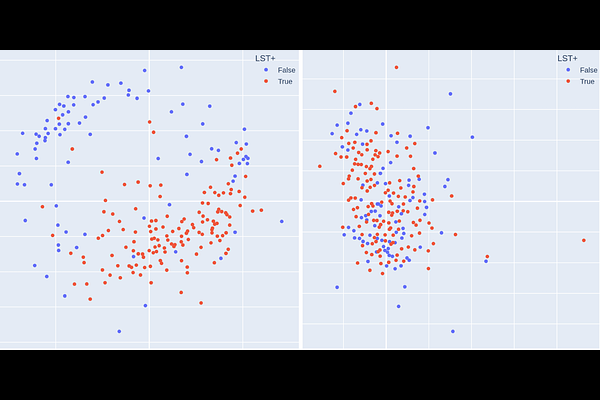Quantum Cognition Machine Learning for Forecasting Chromosomal Instability

Quantum Cognition Machine Learning for Forecasting Chromosomal Instability
Di Caro, G.; Kirakosyan, V.; Abanov, A. G.; Candelori, L.; Hartmann, N.; Lam, E. T.; Musaelian, K.; Samson, R.; Villani, D.; Wells, M. T.; Wenstrup, R. J.; Xu, M.
AbstractThe accurate prediction of chromosomal instability from the morphology of circulating tumor cells (CTCs) enables real-time detection of CTCs with high metastatic potential in the context of liquid biopsy diagnostics. However, it presents a significant challenge due to the high dimensionality and complexity of single-cell digital pathology data. Here, we introduce the application of Quantum Cognition Machine Learning (QCML), a quantum-inspired computational framework, to estimate morphology-predicted chromosomal instability in CTCs from patients with metastatic breast cancer. QCML leverages quantum mechanical principles to represent data as state vectors in a Hilbert space, enabling context-aware feature modeling, dimensionality reduction, and enhanced generalization without requiring curated feature selection. QCML outperforms conventional machine learning methods when tested on out of sample verification CTCs, achieving higher accuracy in identifying predicted large-scale state transitions (pLST) status from CTC-derived morphology features. These preliminary findings support the application of QCML as a novel machine learning tool with superior performance in high-dimensional, low-sample-size biomedical contexts. QCML enables the simulation of cognition-like learning for the identification of biologically meaningful prediction of chromosomal instability from CTC morphology, offering a novel tool for CTC classification in liquid biopsy.